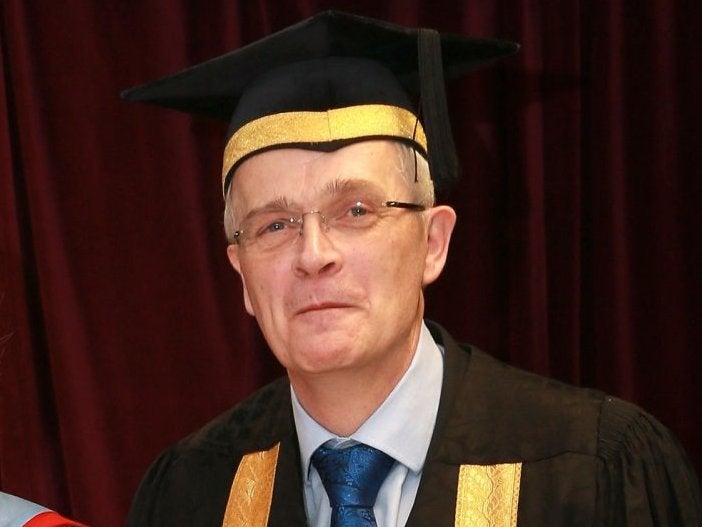Southampton University vice-chancellor keeps £423k salary despite backlash from thousands of students
‘There is no justification for these levels of pay at a university’

One of Britain’s highest paid vice-chancellors kept his £423,000 salary despite thousands of students calling for it to be cut.
The six-figure salary for Sir Christopher Snowden, the leader of the University of Southampton, has remained the same, according to new financial statements from the institution.
Earlier this year, 91 per cent of students voted for the salary to be cut in a survey.
Students and academics have criticised the University of Southampton for a lack of action – especially at a time when university bosses’ salaries are increasingly in the spotlight.
Caspar Donnison, a student at Southampton, said the vice-chancellor had “defied calls” by students and unions for his pay to be cut. “We were all ignored,” he said on Twitter.
Mr Donnison told The Independent: “He continues to draw this excessive and unnecessary pay whilst staff have lost their jobs and whilst students continue to struggle with fees and debt.
“This has been terrible for morale at the university. There is no justification for these levels of pay at a university.”
A row over the University of Southampton vice-chancellor’s pay escalated last year after the institution admitted that Sir Christopher had been on the committee that awarded him the salary.
In the same year, then universities minister Jo Johnson singled out Sir Christopher’s salary as an example when he warned against the “endless upwards ratchet” of vice-chancellors’ pay.
But despite the controversy, the university’s new financial accounts for 2017-2018 show that the vice-chancellor’s pay has not been cut.
Last year, the University of Bath’s vice-chancellor Glynis Breakwell resigned following widespread criticism of her £468,000 salary. Since then, the university has appointed a new vice-chancellor on a reduced salary of £266,000.
Sir Christopher is due to retire in March 2019 and it is unclear at this stage whether his replacement will be offered a lower salary.
Staff at the university have recently launched a petition calling for the new vice-chancellor to commit to receiving a salary no more than 20 times greater than the lowest-paid employee.
Matt Waddup, head of policy and campaigns at the University and College Union, said: “The university sector has suffered serious damage to its reputation following dreadful headlines about the pay and perks of some of those in charge of universities and Southampton has been a serial offender.
“A new era of transparency and accountability at universities over senior pay and perks cannot come soon enough with staff and students given a say in these decisions.”
He added: “Worryingly, it seems that some universities have learned nothing from the scandals that have been so damaging in recent years, or they simply don’t care.”
A University of Southampton spokesperson said: “Our vice-chancellor is one of the most experienced leaders in the higher education sector with a proven record of delivering exceptional results and his remuneration reflects that. He did not receive an increase in his salary this year and does not receive any other payments or bonuses.
“We are now seeing the benefits of the strategy Sir Christopher has introduced. These include regaining our place in the QS world top 100 universities, improving our standings in all national league tables and seeing an increase in income for our world leading research from industry and research councils.”
Subscribe to Independent Premium to bookmark this article
Want to bookmark your favourite articles and stories to read or reference later? Start your Independent Premium subscription today.

Join our commenting forum
Join thought-provoking conversations, follow other Independent readers and see their replies